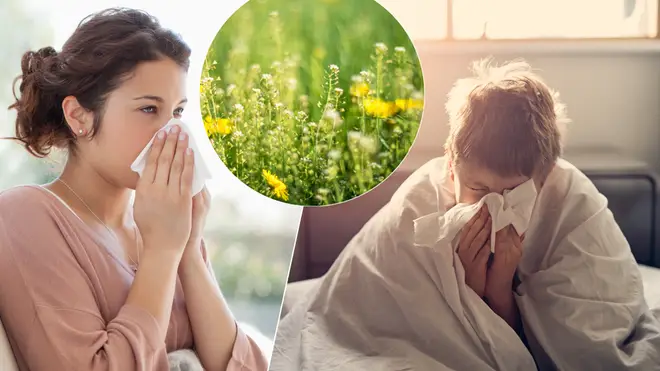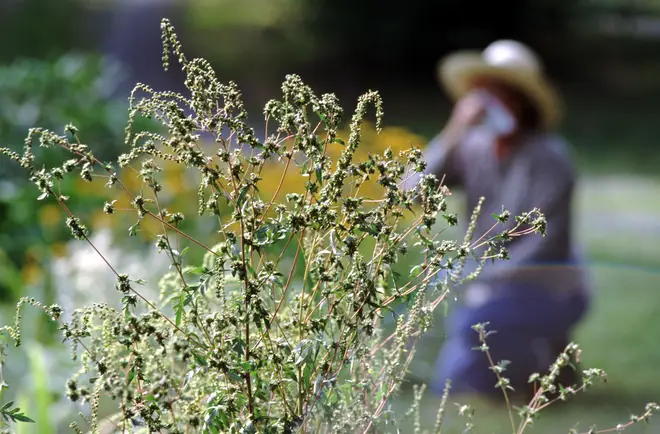Hay fever warning as 17C warm air could trigger ‘pollen bomb’ this weekend
16 February 2021, 10:19 | Updated: 16 February 2021, 10:21

The return of Spring-like weather could spark a 'pollen bomb' over the coming days.
After weeks of sub-zero temperatures, things are finally heating up in the UK.
In fact, temperatures could even hit 17C in parts of southern England later this week, putting an end to the big freeze.
But while many of us will be basking in glorious sunshine over the weekend, the warm weather could bring bad news for hay fever sufferers.
According to experts, the warm air could cause a ‘mini pollen bomb’ due to the extreme change in weather.

Airborne allergens expert Max Wiseberg told the Telegraph: "If we get weather that’s warmer than normal for the time of year this could create a mini pollen bomb with flurries of alder, hazel, elm and willow pollen exploding into the air.
Read More: Brian Conley joins EastEnders as Sonia Fowler’s long lost dad Terry Cant
"This would make a very early start to the hay fever season, so sufferers should ensure they’re adequately prepared.”
Hay fever is a common allergic reaction which occurs at particular times of the year.
It is usually worse between late March and September, the NHS website states, especially when it's warm, humid and windy.

Joss Stone reveals she didn't know how The Masked Singer worked until week three
Hay fever occurs when the body makes allergic antibodies (IgE) to certain substances, such as pollen, house dust mites or mould.
According to Allergy UK, Grass pollen is the most common allergen, but tree and weed pollens can also cause the allergic reaction.
Symptoms include:
- sneezing and coughing
- a runny or blocked nose
- itchy, red or watery eyes
- itchy throat, mouth, nose and ears
- loss of smell
- pain around your temples and forehead
- headache
- earache
- feeling tired
While there is no cure for hay fever, there are some things sufferers can do to relieve symptoms.
Experts advise you apply an effective allergen barrier balm around the edge of each nostril to trap or block pollens and other allergens on days with high pollen counts.
Showering after you have been outside to wash pollen off, keeping windows and doors shut as much as possible and vacuuming regularly can also help.
Find out more on the NHS website.
Now Read: Dancing On Ice taken off air this week after five stars pull out























